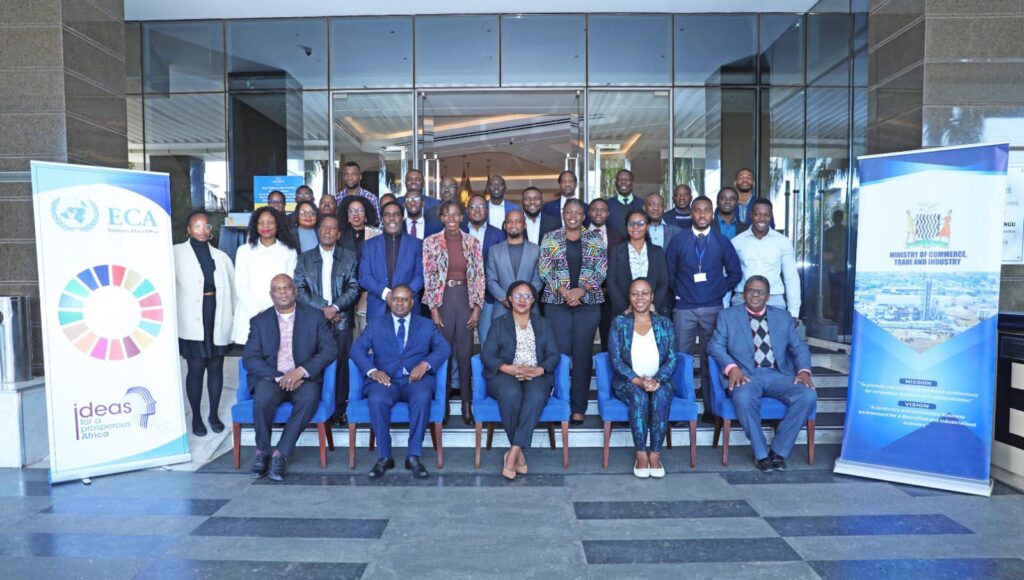Zambia Hosts Workshop for Mid-Term Review and Validation of National Industrial Policy Implementation Plan
The Ministry of Commerce, Trade, and Industry (MCTI), in partnership with the United Nations Economic Commission for Africa (UNECA) Subregional Office for Southern Africa, is holding a two-day workshop in Lusaka.
The workshop aims to review the mid-term progress of Zambia’s National Industrial Policy (2018-2027) and validate the Implementation Plan for the upcoming years (2024-2027).
The primary objective of the workshop is to assess the draft report on the mid-term review of the National Industrial Policy. This assessment seeks to evaluate the policy’s deployment, highlight successes, and identify challenges that need addressing to enhance future implementation.
During the opening session, Mrs. Nalituba Mwale, Acting Permanent Secretary of Trade and Commerce, emphasized the government’s commitment to industrial development as a cornerstone of its development agenda.
She noted that since the launch of the National Industrial Policy in 2018, the government has initiated various measures to support manufacturing and promote economic growth through industrialization.
“The implementation of the National Industrial Policy is crucial for our country’s economic growth,” Mrs. Mwale stated. “We are committed to supporting industrial development to achieve our broader development goals.”
Ms. Olayinka Bandele, Chief of Inclusive Industrialization at UNECA’s Sub-Regional Office for Southern Africa, underscored the importance of industrialization for Zambia.
She highlighted that industrialization is key to diversifying the economy, creating jobs, addressing youth unemployment, reducing poverty and inequality, and strengthening food systems.
“The significance of industrialization for Zambia cannot be overstated,” Ms. Bandele said. “It is essential for creating a more inclusive and resilient economy.”
The workshop brings together a diverse group of national stakeholders, including representatives from government institutions, the private sector, academic and research organizations, micro, small, and medium enterprises, and civil society organizations. This broad participation ensures a comprehensive review and validation process, incorporating insights from various sectors of society.
Participants will engage in meaningful discussions over the two days, focusing on the mid-term assessment findings and strategies for effective implementation of the policy in the coming years.



